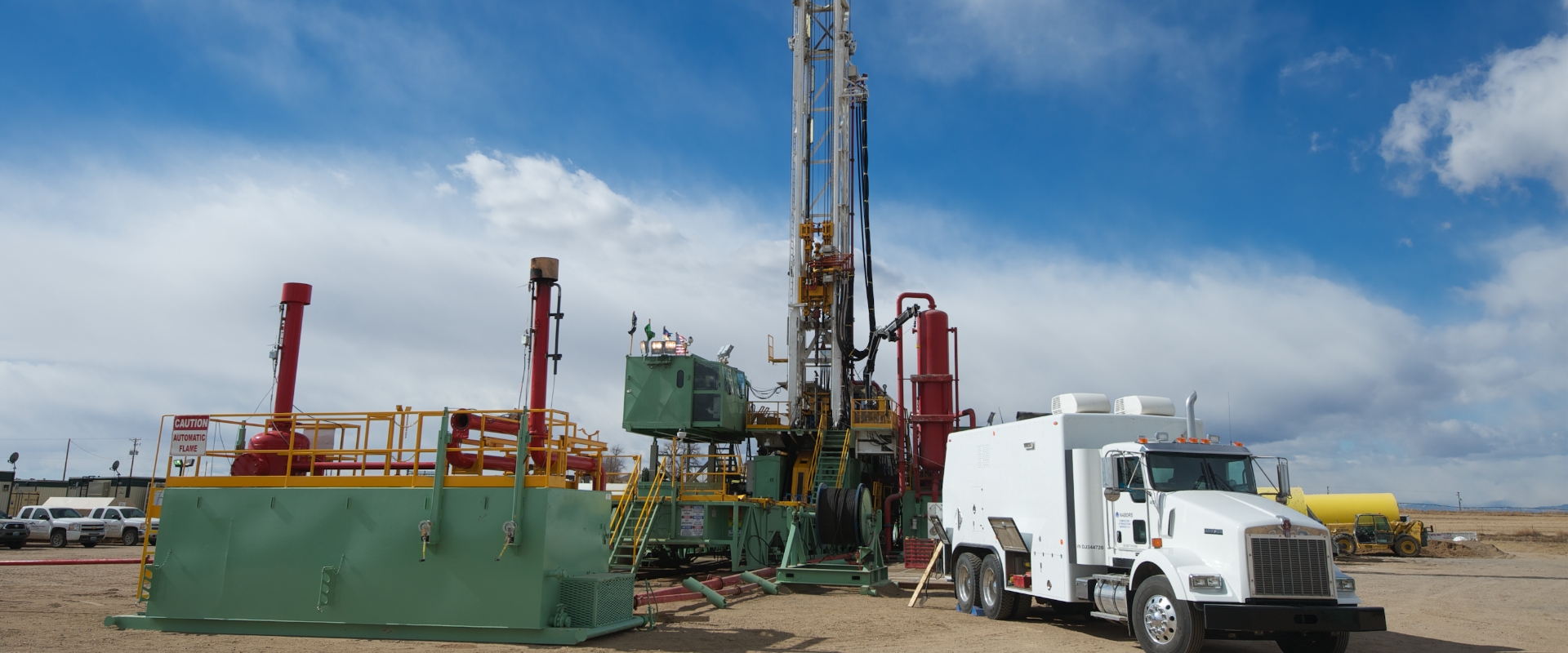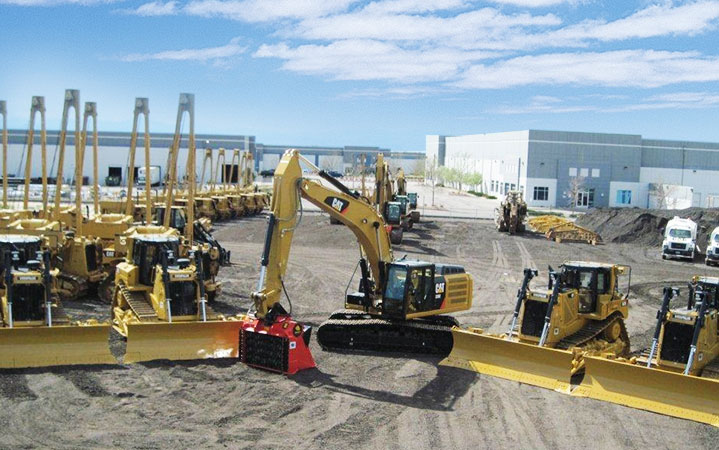Superior Oilfield pipeline equipment rentals vs buying equipment: financial comparison
Wiki Article
A Comprehensive Guide to the Numerous Kinds of Oil Field Equipment and Pipeline Equipment Available
The oil and gas industry depends greatly on customized devices for effective extraction and transportation. Different kinds of machinery, from drilling rigs to storage containers, play important functions in this complex procedure. Each piece of tools offers distinctive features that add to total functional success. Recognizing these components is necessary for any person included in the sector. As the market develops, so also do the modern technologies that support it. What advancements are on the perspective?
Drilling Rigs: The Backbone of Oil Exploration
Drilling rigs work as the essential machinery in the domain name of oil exploration, enabling business to accessibility hydrocarbon gets hidden deep under the Planet's surface. These rigs can be found in different types, including land rigs, offshore rigs, and mobile systems, each designed to operate in details atmospheres. Equipped with advanced innovation, drilling rigs can pass through geological formations with precision, making certain effective resource removal. The architectural stability and functional capacities of these rigs are essential, as they must endure severe problems and substantial stress. The selection of a boring gear influences the total task cost and timeline, making it a vital factor to consider for oil business looking for to optimize their exploration efforts and maximize efficiency in their operations.Pumps: Crucial for Liquid Motion
In the oil extraction process, the duty of pumps is substantial, promoting the activity of liquids throughout different stages of production. Pumps are important for carrying petroleum, water, and various other fluids from below ground tanks to the surface area and after that through pipes to refineries. They are available in numerous kinds, consisting of centrifugal, positive displacement, and completely submersible pumps, each serving specific objectives based on the liquid qualities and operational needs. Centrifugal pumps are typically utilized for their efficiency in high-flow applications, while positive variation pumps stand out in managing thick liquids. The option of pump impacts general effectiveness, functional security, and maintenance prices. Appropriate selection and upkeep of pumps are vital for optimizing production and minimizing downtime in oil field procedures.Shutoffs: Managing Circulation and Pressure

Shutoffs play a crucial role in taking care of the flow and stress of liquids within oil fields and pipes. Different sorts of valves offer unique applications, each created to meet particular features basic for effective operation - Superior Rentals Contact. Understanding the qualities and uses these valves is vital for maximizing system efficiency and security
Sorts of Valves
Essential elements in oil field procedures, valves play a crucial role in controlling the flow and pressure of liquids within pipes and equipment. Different sorts of shutoffs are used to satisfy the varied demands of oil and gas manufacturing. Typical types consist of gateway shutoffs, which supply a straight-line flow and marginal pressure drop; globe valves, known for their strangling abilities; and ball valves, recognized for their quick on/off control. In addition, check shutoffs stop heartburn, while butterfly shutoffs offer a lightweight service for controling flow. Each valve kind is designed with specific products and setups to hold up against the harsh problems often found in oil areas, guaranteeing dependability and effectiveness in procedures. Comprehending these kinds is important for reliable system monitoring.Valve Applications and Features
While different sorts of valves serve distinct objectives, their key applications revolve around managing circulation and pressure within oil and gas systems. Shutoffs such as gate, world, and ball shutoffs regulate liquid motion, guaranteeing peak performance and safety and security. Gate valves are commonly used for on/off control, providing very little circulation resistance. Globe valves, on the various other hand, offer precise circulation regulation, making them suitable for throttling applications. Round valves are favored for their fast procedure and tight securing capacities. Furthermore, stress safety valve are crucial for stopping system overpressure, safeguarding devices stability. Generally, the suitable option and application of shutoffs enhance operational performance, making sure the dependable see here now transport of oil and gas with pipelines and processing facilities.Compressors: Enhancing Gas Transportation
Compressors play an essential role in the efficient transport of gas, making sure that it moves smoothly through pipes over fars away. These gadgets boost the stress of natural gas, allowing it to overcome friction and altitude modifications within the pipeline system. In addition, compressors facilitate the balancing of supply and need, accommodating variations in usage and production prices. Various kinds of compressors are employed in the industry, including centrifugal, reciprocating, and rotating screw compressors, each offering distinctive benefits based upon the operational needs. Normal upkeep of these compressors is important to take full advantage of performance and decrease downtime, inevitably adding to a dependable gas transportation network. Their essential feature underscores the relevance of compressors in the general oil and gas facilities.Storage Tanks: Safe and Efficient Liquid Administration
Effective transportation of natural gas depends on different sustaining systems, among which is the appropriate monitoring of storage containers. These storage tanks play a vital duty in safely consisting of fluids, guaranteeing that functional performance is preserved while reducing ecological dangers. Constructed from sturdy materials, they are developed to withstand high stress and harsh elements. Effectively sized and tactically located, tank assist in the smooth flow of natural gas and other liquids, preventing bottlenecks in supply chains. Regular maintenance and monitoring are imperative to spot leaks or architectural concerns, promoting security and compliance with regulative criteria. Eventually, the efficient management of storage containers is crucial for the total stability and reliability of the oil and gas industry's liquid handling systems.
Pipeline Equipments: Infrastructure for Transportation
Pipeline systems function as the trenchless sewer backbone of the oil and gas go right here industry, promoting the efficient transport of hydrocarbons over substantial distances. These systems consist of different elements, including pipelines, valves, pumps, and compressors, all carefully designed to assure smooth circulation. The materials made use of in pipeline building, commonly steel or high-density polyethylene, are selected for longevity and resistance to corrosion. Pipeline networks can span across land and water, connecting manufacturing sites to refineries and distribution facilities. Additionally, progressed modern technology enables real-time surveillance of flow rates and pressure degrees, boosting operational efficiency. The critical positioning of these pipelines decreases environmental effect while maximizing source availability, thereby playing a crucial duty in conference power demands internationally.Security Equipment: Making Sure Worker and Environmental Management
The operation of pipeline systems, while important for energy transportation, also offers substantial safety and security difficulties for workers and the atmosphere. Safety tools plays a significant role in mitigating these threats. Individual protective equipment (PPE) such as headgears, handwear covers, and non-slip footwear safeguards workers from physical hazards. In addition, gas discovery systems check for leaks, making sure that dangerous materials do not present a danger to workers or the surrounding ecological community. Emergency shutdown systems are vital for rapidly stopping operations during a crisis, preventing potential calamities. Spill containment products, including absorbents and barriers, are basic for decreasing environmental impact. Overall, purchasing all-inclusive safety tools is essential for maintaining functional stability and protecting both employees and the atmosphere in the oil and gas sector.
Often Asked Inquiries
Just how Do I Pick the Right Oil Field Equipment for My Task?
Picking the ideal oil area devices includes assessing project specifications, budget constraints, and functional needs. Consider elements such as devices reliability, compatibility with existing systems, and the distributor's credibility to assure peak efficiency and safety and security.What Are the Upkeep Requirements for Oil Field Equipment?
Upkeep demands for oil area devices include routine assessments, lubrication, and prompt repairs. Operators must additionally follow manufacturer standards, display performance metrics, and warranty conformity with security guidelines to improve long life and effectiveness.
Just How Can I Ensure Conformity With Environmental Regulations?
To ensure conformity with environmental policies, business need to perform normal audits, implement best practices, purchase training, preserve correct documents, and remain upgraded on regulation (Superior Rentals midland). Collaboration with environmental agencies can also enhance adherence to regulationsWhat Is the Ordinary Life-span of Pipeline Equipment?
The typical life expectancy of pipeline equipment generally ranges from 20 to 50 years, depending on factors such as worldly top quality, ecological conditions, and maintenance techniques. Normal assessments can considerably affect longevity and functional effectiveness.How Do I Safely Move Oil Field Equipment to Remote Locations?
Transporting oil field tools to remote areas needs mindful planning, including course analysis, protecting permits, using proper cars, and ensuring safety and security procedures are adhered to. Appropriate training and communication amongst crews are essential for successful transport.Report this wiki page